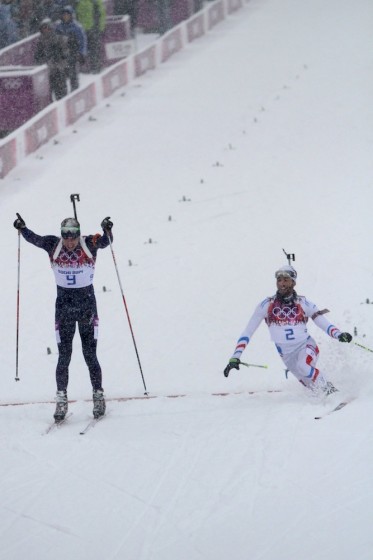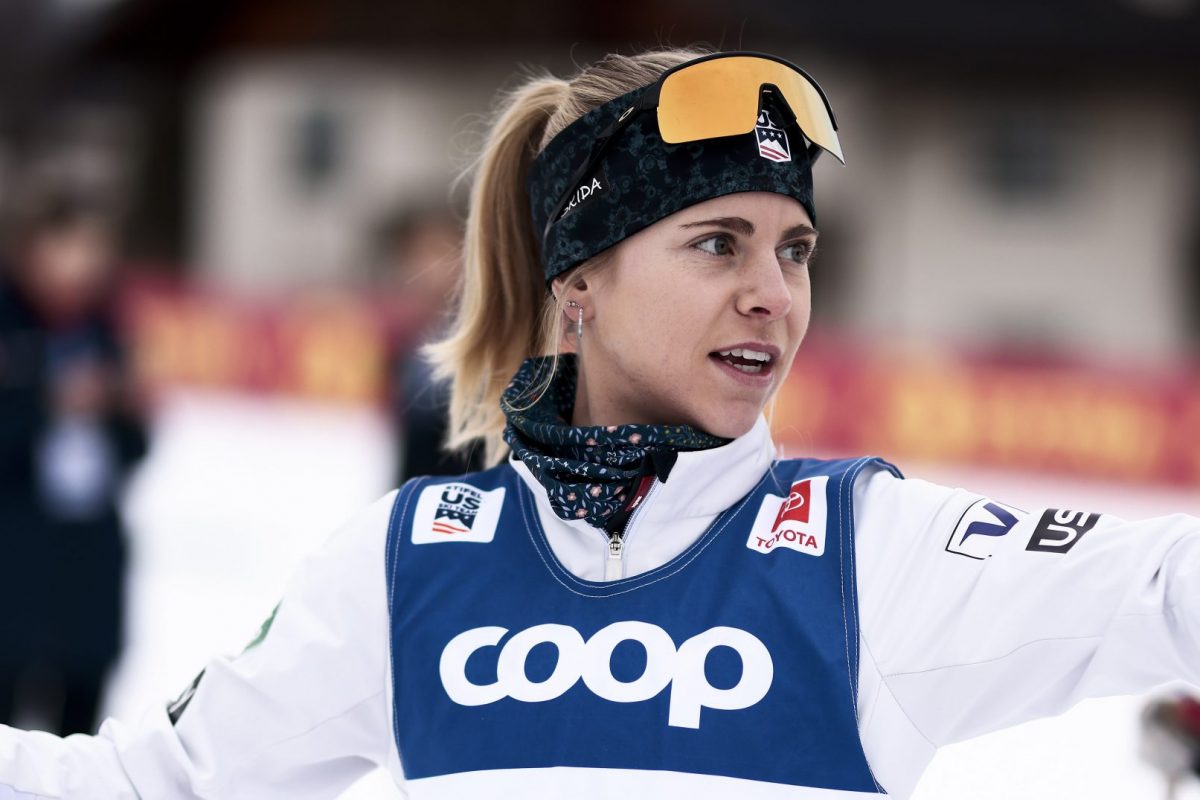
On Wednesday, we discussed the major changes to the women’s biathlon World Cup field for the upcoming season. Unlike with the women, only a few of the top-ranked men have retired, and, well, none of them are pregnant, either.
Instead, this season may be different in another way: two of the top stars may not be in their best form. That may allow the top-tier competitors who have been nipping at their heels to make some bigger leaps towards the top – and the diversity of faces on the podium may become even greater.
Or, Fourcade and Svendsen may buckle down and dominate, just as usual. Here’s our update on the World Cup top ten:
- A lot has been happening with French superstar Martin Fourcade. First, he announced that he was going to focus on crossing over to cross-country skiing this season, with a goal of the 2015 World Championships in Falun, Sweden, as well as the biathlon World Championships themselves. Then, this plan was derailed when he was diagnosed with mononucleosis. Fourcade says that he has not taken any time completely off, and is still training, he just can’t recover well. Whether this treatment plan works well is a big question.
- Emil Hegle Svendsen of Norway experienced the highest of highs and the lowest of lows at the Olympics. He beat Fourcade by a centimeter in the mass start for gold; then he royally botched the anchor leg of Norway’s relay and took them out of medal contention, a disaster that left him catatonic. But Svendsen is already one of the most successful biathletes in history, with 35 World Cup wins, the third most in history. He admitted this fall to a lack of motivation, and doesn’t see himself competing in the next Olympics. At summer national championships, it was instead Lars Helge Birkeland who distinguished himself.
- Johannes Thingnes Bø is Norway’s newest young star. His rise to the top of the rankings list came in large part from two victories in Annency, France, when Svendsen and the other Norwegians were not competing, and where Fourcade was strangely listless. But he has proved over and over that he belongs at the top with the other superstars. He is, however, the youngest member of the top ten; can he pull it off two seasons in a row? Will the idea of Fourcade and Svendsen at less than their best give him more motivation?
- Dominik Landertinger of Austria won Olympic silver in the sprint and fought hard until the end of the season and almost made the top three. It was a much-improved season for the historically strong Austrian team, but their coach Remo Krug’s contract was not renewed come spring. Reinhard Gösweiner has taken over, one in a long line of new coaches for Austria in the past few years. Landertinger has posted many happy photos from this summer’s training, so the uncertainty and personnel changes may not have affected him too badly.
- But Simon Eder stole a win in the pursuit at Austrian Championships this summer (after Julian Eberhard won the sprint). And in perhaps the most important battle of the summer, Eder has the fastest time for hitting five standing targets with his rifle: 8.15 seconds. Okay, so he wasn’t skiing first, but that’s impressive. It’s a split second ahead of Bjørndalen, who clocked in at 8.5, and miles ahead of Fourcade, at 10.26.
- Ole Einar Bjørndalen is now the most successful winter Olympian of all time. Out of anyone, he’s the one who could retire today and have no regrets. But he has said that the Oslo World Championships in two seasons time remain a big goal, and unlike Svendsen, he is not lacking in motivation. Age is no barrier to performance for the King of Biathlon.
- Arnd Peiffer was once Germany’s next great hope, but has had several off years of late. This season he seemed to return somewhat to old form, although he still only managed three third-place finishes on the World Cup in 2014. There has been extensive discussion within Germany of why its biathlon team is falling from prominence, which will hopefully lead to stronger performances in 2015. And Peiffer seems to be on form, having strong races at summer championship events.
- Anton Shipulin, the top Russian, has not been training with the Russian men’s team in the off-season. This has been the case since last fall, when he switched training groups in the leadup to the Olympic season. Shipulin said that his biggest goal was to become an Olympic champion – and he did in the relay in Sochi, but missed any individual medals. He’s likely the only Russian man who could get away with training outside the main system, but is it working?
- Sweden’s 2010 Olympic champ Björn Ferry had another good season, hitting the podium late in the year. But he retired at the end of the season, just as he had always planned to.
- Simon Schempp of Germany continued to assert himself as the supporting talent to Peiffer’s stardom. In 2014, he won two World Cup races. But with lackluster performances from many of the team’s veterans, Schempp truly seemed to be carrying the weight of a country on his shoulders. In a post-Olympic year, will the pressure be off? And if so, will that allow him to perform even better?
Brainspiral
previous
Madshus empower™ US Dealer Tour Kicks off in October
next



